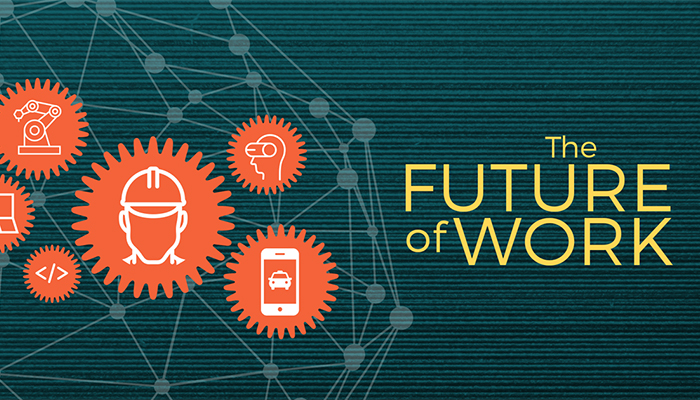Within the next decade technological innovations, globalization, and demographic shifts will have an unprecedented impact on the landscape of work. On one hand, new technologies will bring opportunities for increased business productivity, as well as for the workforce in terms of replacing dangerous or repetitive tasks with high-skilled work. On the other hand, as tasks are increasingly being carried out by machines or artificial intelligence, there is concern about the impact on jobs. This evolution can feel unnerving, but we know this change is inevitable. Let’s look at some ideas about how to prepare for it.
Employment in certain sectors, such as food service, office support, and machine operators will drop off sharply. But for the 75 million jobs that are estimated to be lost, 133 million are predicted to take their place. Some that will continue to be in demand will be healthcare professionals to care for a large aging population, STEM professionals for innovation, and those in education and training, particularly in the online space. We will see an increased focus on IT and data experts, healthcare technology, AI specialists, app and cloud-based developers, and HR and talent managers to help guide this transition. We can also expect a wave of jobs that don’t exist yet.
So what do individuals need to do to ensure their place in this brave new workforce? Being able to adapt to technological change is probably the most crucial skill of this era. Engaging with automation and being comfortable with the new ways that AI will interface with people will position you to do well. Also, due to the rapid rate of technological change, the lifespan for any given skill set is shrinking, so it will be imperative for individuals to continually invest in acquiring new skills. Commit to lifelong learning so that you are adaptable when changes happen. And realize that your career trajectory might look quite different than a series of predictable climbs up the ladder. Pursing a diverse set of work experiences will allow you to shape your own career path.
Businesses and employers will also be greatly impacted by these technological changes. In addition to adapting to automation and artificial intelligence, they will need to think differently about the ways they recruit and hire new employees. Companies need to carefully consider a prospective employee’s potential and assess skills that are less likely to be made obsolete by technology, including critical thinking, emotional intelligence, creativity, and problem-solving abilities. Businesses will need to utilize permanent and contingent workforces, partnerships with talent agencies, and training to obtain the skilled employees necessary for all levels of the organization. Having an agile workforce will be one of the keys to success during this time.
The workplace revolution is moving fast, and a decade is not as long as it might seem. There is a current window of opportunity now for individuals and business to proactively manage the transition to a new future. If your workplace needs are already changing, get in touch with Innovative Career Resources today and see how we can help meet your goals.

